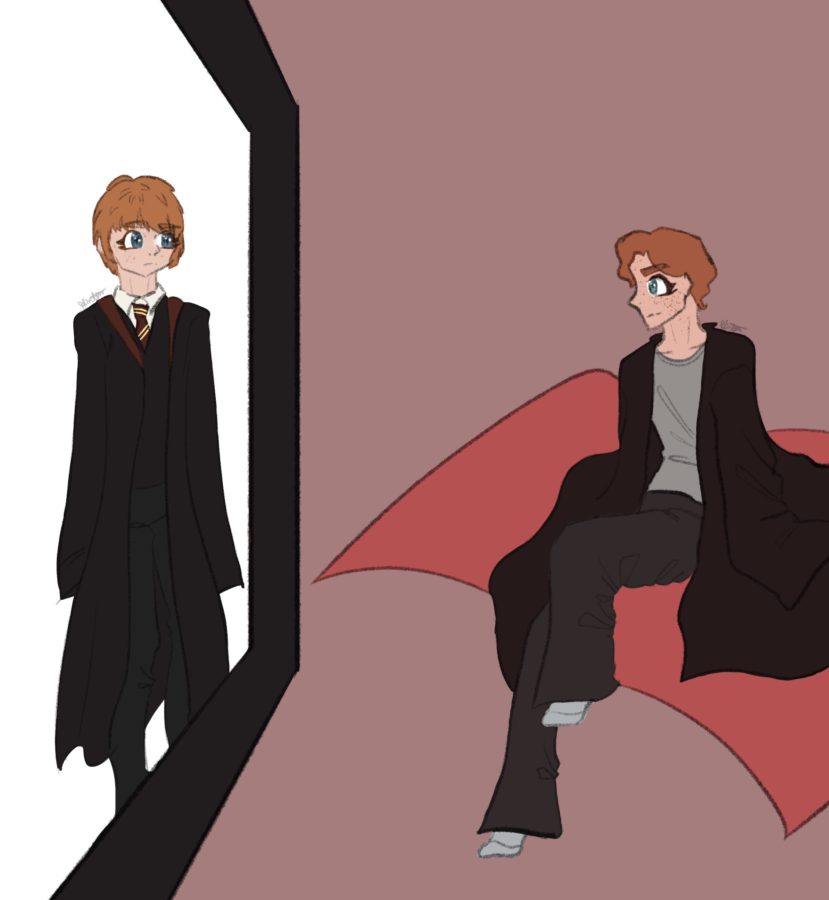Movies versus books: Which is better and why
When I was younger, I read a lot.
Like the “everyday-for-hours” kind of a lot.
As I grew older, my curiosity peaked at the idea of watching movies developed from the book. I was – and still am – amazed at how words on a page, that had previously only come to life in my imagination, could be changed into a movie on screen.
That said, movie adaptations of books are complicated. Sometimes they’re gratifying, and sometimes they’re disappointing – you never really know what you’re getting into. So, if you are to ask me if I like movie adaptations, I can’t give you the simplest response.
The biggest problem when it comes to movie adaptations is when the story differs from the book. It’s a sort of given when authors hand their work over to directors that some creative liberty has to be taken. And don’t get me wrong, sometimes this is really good for the movie – it allows for a new perspective and guidance from someone who knows movies more than the author does.
“Little Women” (2019) is a great example of this, with the director changing how some scenes play out or even excluding them, with the intention of creating a more entertaining and concise film. However, it’s a whole different story when the director takes advantage of this creative freedom.
Movies often exclude more than a few scenes that happened in the book – sometimes dozens. It’s tragic when all this work has been put into transforming words into reality just to have half the scenes in the book changed or removed completely. Also, people who have never read the book who watched the movie might miss out on some of the best scenes.
Another potential problem with movie adaptations is the inaccurate portrayal of the characters in the books. I don’t care if the actors look anything like how the characters are described. I’ve heard countless “Harry Potter” fans express their frustration with Ron’s red hair in the movies, which is not as vibrant as the books described it to be, as well as his freckles appearing less evident. I have to laugh at this; red hair is red hair, and I’m not that picky when it comes to a character’s appearance. Unless there is a feature that is really prevalent and important in the plot of the story itself, it doesn’t really matter to me if actors look different than the characters.
Though something that does bother me about the appearance of an actor is when they look way older than the character they’re playing. I hate it when the movie characters are older than they are in the books, especially when the actors and their portrayed characters are several years apart. The “Percy Jackson” movies are a perfect example of this: the first book tells the story of 12-year-old Percy, but the movie raised his age to be 16 and hired 18-year-old Logan Lerman to play the role. Besides just being annoying and inconsistent with the books, it also creates unrealistic expectations for the viewers.
This isn’t the only unrealistic expectation movies are prone to set. When Hollywood rids characters of their flaws, it ruins the characters. In books, authors usually describe some of the insecurities of a character. But movies often delete these, making the actors picture-perfect with their hair and makeup always immaculate. In the “Hunger Games” movies, for example, Katniss Everdeen (played by Jennifer Lawrence) looks practically the same before and after surviving in the woods during the ruthless competition. Sure, there are a few strands of hair out of place and such, but it sharply contrasts with the description of her injuries in the book. The movie also just gets rid of Katniss’s general imperfections mentioned in the book. I mean, of course you want to look good if anyone everywhere can watch you on TV, but I think it’s important to normalize the flaws of the characters that not a single person lives without.
Something else that bothers me is when actors stray from the original character’s personality. This can be due to the director’s instructions, or it could simply be the actor’s take on the role. Whichever way it occurred, though, it’s annoying when you love a character in the book – maybe it’s their snarky humor or bubbly attitude – but end up finding them dull and boring. I’m not saying it’s easy to turn a character only described in writing into an actual person (I would embarrass myself if I tried), but I do think that people in the movie industry need to take the time to read the books and research their character if they want to accurately portray them on camera.
Obviously, anyone can watch any movie they want. But, if you know a film is inspired by a book, it’s best to read the book before sitting down for movie night. I know a movie is definitely less of a commitment than a book, but you miss out on the best part of a story if you jump ahead to the movie, that being the ability to take the words you read and make up your own unique pictures in your mind.
Once you’ve seen the characters and places in the movie, you won’t be able to have that childlike experience; you’ll automatically associate the movie character with the name in the book, disregarding the original description.
But there’s a much simpler reason you should read the book first: it’s just more fun than skipping to the movie. I mean, and it might just be my inner bookworm talking, but it’s so cool to compare what I had developed in my mind to an actual movie on screen. I love to notice the movie’s similarities and differences, as long as it’s not too many, to the book.
Another big difference between books and movies is the limitations they pose. Movies are at a huge disadvantage. Authors can create this wondrous and elaborate world with their own creativity as a limit. So it’s safe to say that books can include basically anything the author wants, no matter how extreme or impossible it is. When it comes to turning this into a movie, there’s definitely some problems that can occur.
The obvious problem is the budget of a movie. Despite millions of dollars being put into one movie, it’s still a challenge to create the expansive world that the author originally came up with. Books are able to include many more details as well as diverse settings simply because they don’t have to construct them in reality.
A second problem is the safety of the actors working in the movie. In books, authors don’t have to worry about how a character will be able to jump from a building to a moving train and make it out alive. They simply write it that way, and that’s what happens. However, that scene becomes a lot harder to replicate with real people and the real danger that action poses. They have to carefully plan out how stunts will work, often having to enact changes in order to make the stunt realistic.
So if you’re wondering if movie adaptations of books are worth your time, I think that you should definitely give them a chance. Despite the creation of some rather questionable movies based on books, there are still many very well-crafted movies out there. Just take your time to find what you do and don’t like – maybe you prefer fantasy adaptations, or maybe romance. Whatever you do though, please, please, please read the book first.
Your donation will support the student journalists of Bellaire High School. Your contribution will allow us to purchase equipment and cover our annual website hosting costs.



